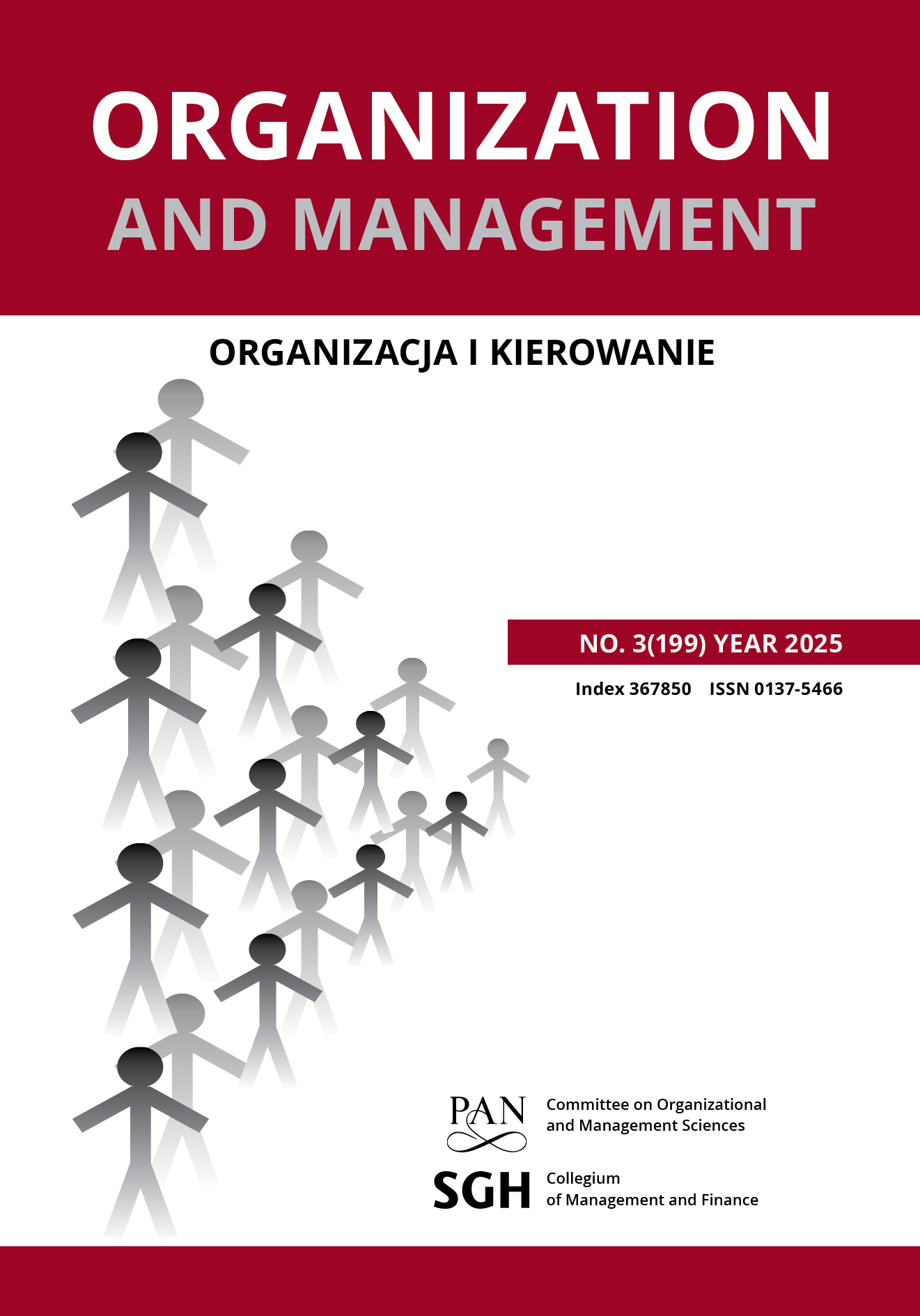
The Organization and Management publishes articles concerning the theory of organization and management, with particular emphasis on the results of empirical research. The Journal’s mission is to shape the scientific discussion and to define prospects for research in the discipline of management and quality sciences.
Current Issue
Vol. 199 No. 3 (2025): ORGANIZATION AND MANAGEMENT
